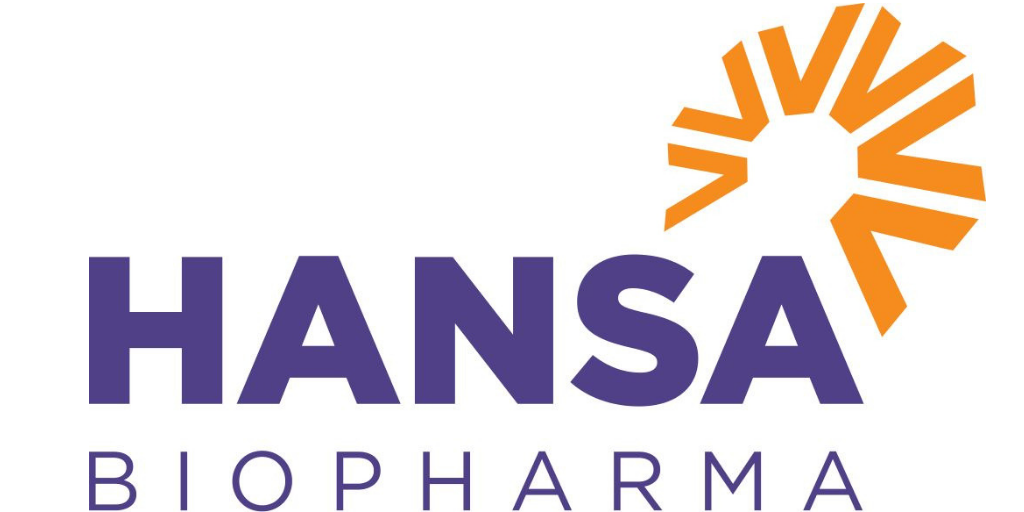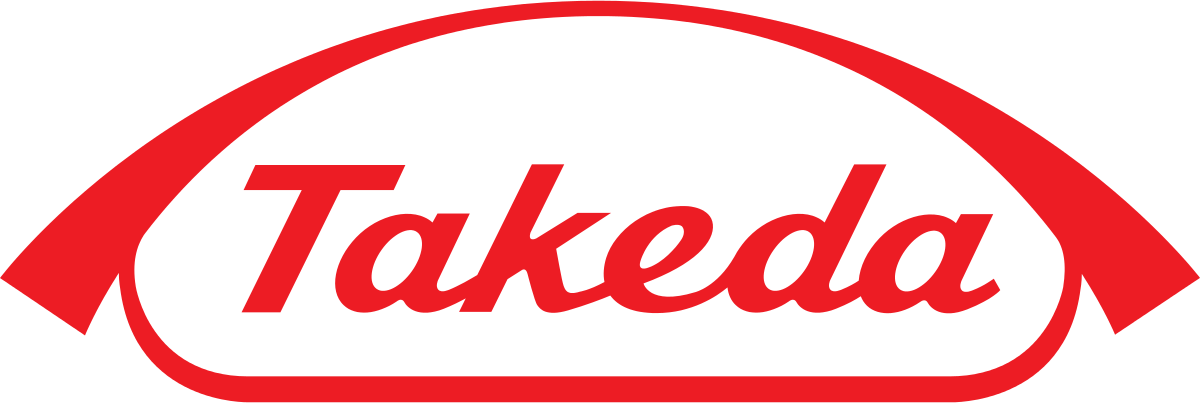Partners' Blog - June 2023
Thanks for visiting the June 2023 Partner's Blog!
View all Partner's Blog updates
Thank you for visiting the June 2023 Partner's Blog! I hope that you find the featured information helpful.
The Corporate Affiliates Program provides an exciting opportunity for companies to support the work of the American Society of Transplantation (AST) and receive tangible benefits throughout the year. The following companies are members of the 2023 Corporate Affiliate Program (CAP).
For additional partner information, check out AST Partner Connect.
Richard Formica
AST Development Chair
What's News With Our Partners:
AstraZeneca has commenced the pivotal Phase I/III SUPERNOVA trial for AZD3152, a next generation long-acting antibody combination being developed to protect vulnerable patients from COVID-19.
AstraZeneca is committed to the fight against COVID-19, and to keep up with the evolving variant landscape and be prepared for future pandemics, they are rapidly advancing the SUPERNOVA clinical trial and regulatory reviews to respond in a timely manner.
To learn more about the SUPERNOVA trial, please reach out to the American Society of Transplantation (AST) or you may direct patients to our trial website for eligibility and enrollment.
- Hansa Biopharma is please to share some of our important events and announcements over the past few months.
- ATC 2023: Hansa is proud to have been a part of this exceptional conference with a medical booth in the exhibit hall and many interactions and discussions with HCPs, AST leadership and colleagues and friends. We are looking forward to continuing our research and partnerships to help address urgent unmet needs in rare diseases.
- U.S. ConfIdeS phase 3 trial: As of April 20, 2023, 62 patients have been enrolled in our pivotal U.S. open label, randomized controlled trial of imlifidase in kidney transplantation. Hansa continues to see strong interest among clinics and will continue enrollment to accelerate randomization. We expect to add further centers up to a total of 20.
- HNSA-5487: the second-generation lead molecule, is progressing. A new clinical phase 1 trial has started with dosing of the first healthy volunteers.
- GBS phase 2 trial: On March 31, 2023, Hansa announced completion of enrollment in the phase 2 study of imlifidase in GBS. The first high level data read-out is expected in the second half of 2023.
- Gene Therapy:
- Following successful pre-clinical work completed by Hansa and Sarepta, plans were announced to initiate a clinical study with imlifidase as a pre-treatment to Sarepta’s SRP-9001 gene therapy in Duchenne Muscular Dystrophy (DMD) during 2023.
- On April 27, Hansa announced it has entered a research and development collaboration with Généthon, a pioneer and a leader in gene therapy research and development for rare genetic diseases. The collaboration will evaluate the safety and efficacy of imlifidase as a pre-treatment prior to the administration of Genethon’s gene therapy product candidate GNT-0003 in Crigler-Najjar syndrome in patients with pre-existing neutralizing antibodies (NAbs) to adeno-associated virus serotype 8 (AAV8).
- Management updates: Hansa announced the appointment of Matthew Shaulis as Chief Commercial Officer and U.S. President of Hansa Biopharma.
- Publications: A Hansa-funded and co-authored paper was featured on the front cover of the May issue of Clinical Transplantation. The article is titled “The real unmet need: A multifactorial approach for identifying sensitized kidney candidates with low access to transplant”.
Hansa-MA-GLO.23.001-001
Approved June 2023
TERLIVAZ® (terlipressin) is the first and only FDA-approved treatment to improve kidney function in adults with hepatorenal syndrome with rapid reduction in kidney function.1 Please see Limitation of Use and Important Safety Information, including Boxed Warning, below.
Since the approval of TERLIVAZ, Mallinckrodt Pharmaceuticals has received questions from several healthcare professionals related to how many vials of TERLIVAZ to keep in stock and how long patients typically receive therapy. The Prescribing Information for TERLIVAZ provides guidance for the maximum total dose and treatment duration.1 Data from the pivotal CONFIRM trial showed that most patients did not require a dose increase or the maximum duration of therapy.2
Based on the Prescribing Information, it is recommended to start TERLIVAZ at a dose of 0.85 mg (1 vial) every 6 hours by slow intravenous bolus injection for Days 1-3. On Day 4, the patient’s serum creatinine (SCr) should be evaluated; the change in SCr from baseline will determine if the dose is maintained at 1 vial every 6 hours, increased to 2 vials every 6 hours, or if TERLIVAZ is discontinued altogether.1,a Of the 200 patients treated with TERLIVAZ in the CONFIRM trial, 28.6% of patients received a dose increase to 2 vials (1.7 mg terlipressin) at Day 4 per the dosing algorithm.2
The recommended maximum duration of TERLIVAZ therapy is 14 days; however, TERLIVAZ should be stopped 24 hours after patients achieve a second SCr value of ≤1.5 mg/dL at least 2 hours apart.1 Only 8% of patients in the TERLIVAZ arm received treatment for >12 days. In fact, the mean duration of treatment for patients receiving TERLIVAZ in the CONFIRM trial was 6.2 days of therapy. This equated to a mean of 20.3 total doses of TERLIVAZ per patient in the CONFIRM trial.2 Most patients treated with TERLIVAZ in the CONFIRM trial did not require the maximum dose and duration of therapy.
To learn more about TERLIVAZ, visit TERLIVAZ.com.
*Please note, the approved Prescribing Information states the dose of the active moiety, which is terlipressin. Thus, 1 mg terlipressin acetate is equivalent to 0.85 mg terlipressin base, and 2 mg terlipressin acetate is equivalent to 1.7 mg terlipressin base.1
INDICATION AND LIMITATION OF USE
TERLIVAZ is indicated to improve kidney function in adults with hepatorenal syndrome with rapid reduction in kidney function.
- Patients with a serum creatinine >5 mg/dL are unlikely to experience benefit.
IMPORTANT SAFETY INFORMATION
WARNING: SERIOUS OR FATAL RESPIRATORY FAILURE
- TERLIVAZ may cause serious or fatal respiratory failure. Patients with volume overload or with acute-on-chronic liver failure (ACLF) Grade 3 are at increased risk. Assess oxygenation saturation (e.g., SpO2) before initiating TERLIVAZ.
- Do not initiate TERLIVAZ in patients experiencing hypoxia (e.g., SpO2 <90%) until oxygenation levels improve. Monitor patients for hypoxia using continuous pulse oximetry during treatment and discontinue TERLIVAZ if SpO2 decreases below 90%.
Contraindications
TERLIVAZ is contraindicated:
- In patients experiencing hypoxia or worsening respiratory symptoms.
- In patients with ongoing coronary, peripheral, or mesenteric ischemia.
Warnings and Precautions
- Serious or Fatal Respiratory Failure: Obtain baseline oxygen saturation and do not initiate TERLIVAZ in hypoxic patients. Monitor patients for changes in respiratory status using continuous pulse oximetry and regular clinical assessments. Discontinue TERLIVAZ in patients experiencing hypoxia or increased respiratory symptoms.
Manage intravascular volume overload by reducing or discontinuing the administration of albumin and/or other fluids and through judicious use of diuretics. Temporarily interrupt, reduce, or discontinue TERLIVAZ treatment until patient volume status improves. Avoid use in patients with ACLF Grade 3 because they are at significant risk for respiratory failure.
- Ineligibility for Liver Transplant: TERLIVAZ-related adverse reactions (respiratory failure, ischemia) may make a patient ineligible for liver transplantation, if listed. For patients with high prioritization for liver transplantation (e.g., MELD ≥35), the benefits of TERLIVAZ may not outweigh its risks.
- Ischemic Events: TERLIVAZ may cause cardiac, cerebrovascular, peripheral, or mesenteric ischemia. Avoid use of TERLIVAZ in patients with a history of severe cardiovascular conditions or cerebrovascular or ischemic disease. Discontinue TERLIVAZ in patients who experience signs or symptoms suggestive of ischemic adverse reactions.
- Embryo-Fetal Toxicity: TERLIVAZ may cause fetal harm when administered to a pregnant woman. If TERLIVAZ is used during pregnancy, the patient should be informed of the potential risk to the fetus.
Adverse Reactions
- The most common adverse reactions (≥10%) include abdominal pain, nausea, respiratory failure, diarrhea, and dyspnea.
Please see full Prescribing Information, including Boxed Warning, available at TERLIVAZ.com.
References:
1. TERLIVAZ® (terlipressin). Prescribing Information. Bridgewater, NJ: Mallinckrodt Hospital Products Inc.
2. Data on File – Ref-05035. Mallinckrodt Pharmaceuticals.
Mallinckrodt, the “M” brand mark and the Mallinckrodt Pharmaceuticals logo are trademarks of a Mallinckrodt company. Other brands are trademarks of a Mallinckrodt company or their respective owners.
© 2023 Mallinckrodt. US-2300349 06/2023
New ProActive Study Interim Data highlights Prospera Transplant Rejection Surveillance Use, presented at ATC 2023. Notable highlights include:
- Predicted Antibody Mediated Rejection (ABMR) up to 4 months and T Cell-Mediated Rejection (TCMR) up to 2 months in advance of biopsy-proven rejection (Poster Link)
- 86.9% of clinically stable patients had donor-derived cell-free DNA levels (dd-cfDNA) persistently <1% (Poster Link)
- Patients with biopsy-proven rejection showed a 60x median elevation in dd-cfDNA % vs baseline, compared to just 1.3x median elevation in the non-rejection group (Poster Link)
Spotlight on Prospera Heart at International Society of Heart and Lung Transplantation (ISHLT) industry sponsored symposium
Prominent experts in the field of transplantation detailed three major clinical investigations designed to further validate the inclusion of dd-cfDNA analysis in standard clinical care for heart transplant patients.
- Shelley Hall, MD, FACC, FHFSA, FAST Baylor University Medical Center
- Walked attendees of the Natera Heart Symposium through the ProTECT (Prospera Test Evaluation in Cardiac Transplant) study design and preliminary results
- Shelley’s recording
- Shriprasad Deshpande, MD Children’s National Hospital
- Detailed DTRT (DNA-based Transplant Rejection Test) study details and conclusions - including how the study validates the use of Natera’s ProsperaTM test in pediatric heart transplant patients.
- Shriprasad’s recording
- Philip Halloran, MD, PhD University of Alberta
- Shared study design and Initial results from the TRIFECTA-Heart study
- Phil’s recording
Kidney Disease: Improving Global Outcomes (KDIGO) Controversies Conference advises practitioners to "Think Genetic." In May 2022, KDIGO published an executive conclusions paper stating, "Given the important contribution of genetic variants to CKD, practitioners with CKD patients are advised to 'think genetic.'" Renasight provides a comprehensive approach to incorporating genetic testing into daily practice. Conveniently, Renasight comes with unparalleled access to board-certified genetic counselors and patient and provider support services. Get started with Renasight today
Thank you to all those that visited Sanofi’s booth at ATC and joined us in celebrating 25 Years within the kidney transplant community!
As an activity at ATC, Sanofi developed an Interactive Patient Journey Experience to uncover the disparities that exist throughout the kidney transplant patient journey. Gender, race, ethnicity, and language are all barriers that may reduce the likelihood of a patient receiving a referral and/or information about kidney transplantation.
Sanofi is committed to addressing these disparities and proud to share a variety of resources focused on promoting transplant success. Visit Sanofi.ASTpartnerconnect.com to learn more about the resources available for use at your center.
© 2023 sanofi-aventis U.S. LLC. All rights reserved.
Check out all of our CAP partners:
![]()

















